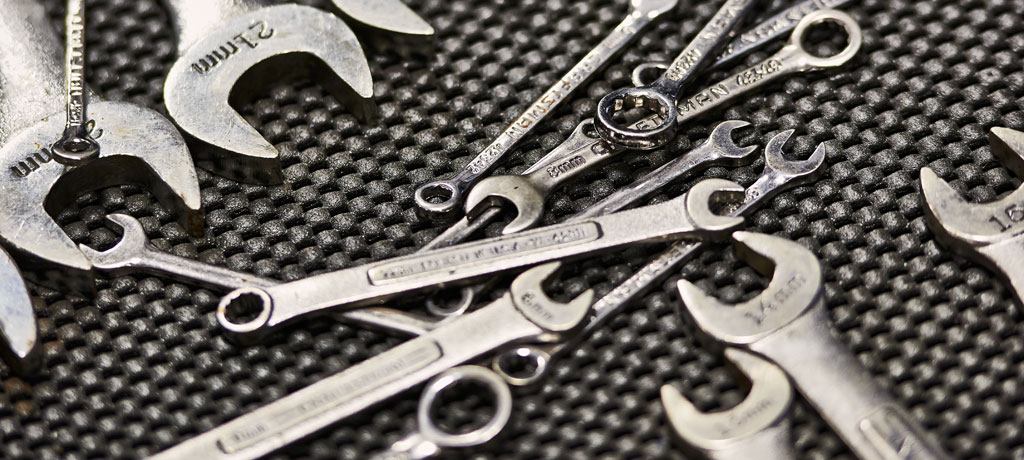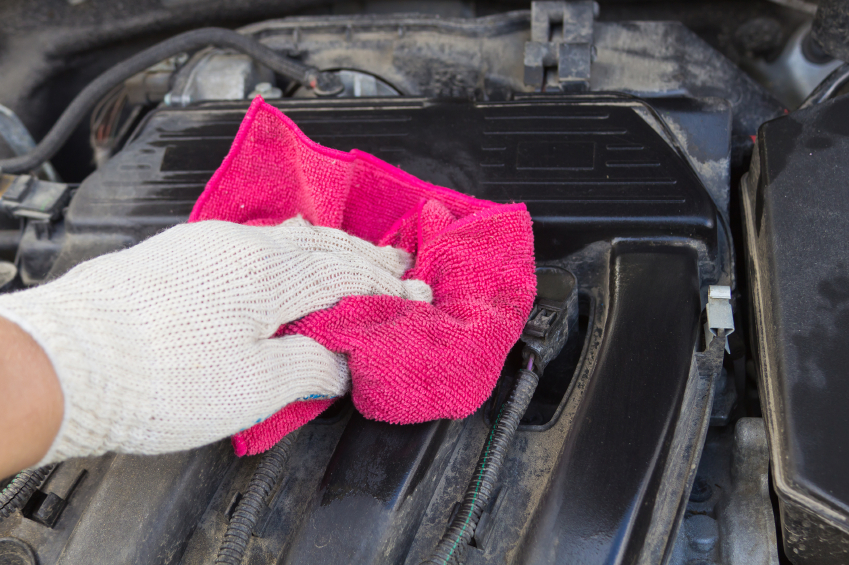Buying gasoline can often feel like one of life’s unspoken adulting conundrums. We all have to do it, but we wonder if everyone else at the pump has a better idea about all those numbers and labels than we do. That’s no surprise.
There’s a lot of conflicting information out there about which button to push at the pump, and what the magic formula is for getting the best gas mileage. If you are wondering whether premium fuel lasts longer or translates to better fuel economy, you first need an understanding of how fuel interacts with your engine.
Let’s clear things up a bit with a look at regular versus premium gasoline.
What Is Premium Gas Made Of?
You typically see three types of unleaded fuel labels at the gas pump—premium, midgrade, and regular. There is also a number below indicating a range between 85 to as high as 94. This number refers to the octane level of each type of gasoline.
Octane is the name of a chemical compound. This flammable hydrocarbon, in combination with several others, is what comprises gasoline. When ignited, it powers your car’s engine. These octane numbers (87, 89, 91, etc.) refer to the amount of energy required to ignite the gasoline. It is actually a percentage of the fuel’s performance measured against pure (100%) octane.
Lower octane gas (regular) burns quicker than higher octane. It also requires less energy to ignite. High-octane gas (premium) burns more slowly.
Does Premium Gas Give You Better Gas Mileage?
So, does premium gas last longer or give you better gas mileage? No, paying for premium gasoline when your car doesn’t require it will not give you better gas mileage. Premium gas has a similar chemical composition to regular unleaded gas and therefore doesn’t last longer.
Certain engines require a controlled gasoline burn to work efficiently. Others do not. Your owner’s manual will tell you if your specific engine needs premium gasoline to be in optimum working order.
Does Premium Gas Help Your Engine Last Longer?
What does premium gas actually do for your car? High octane fuel may help prevent engine knock in high-pressure engines. Knocking occurs when there are small gasoline explosions occurring within the engine.
These small explosions interfere with the cylinders’ normal operation and can damage engine parts. Ignoring these knocks can result in an expensive repair and reduce your car’s performance significantly.
This is also where a lot of the confusion comes in. It is easy to assume every car engine is a high-pressure environment that would benefit from using premium gas to prevent knocking. High pressure is an engine class that applies to luxury cars and high-performance vehicles.
If your vehicle is in this class, your owner’s manual will specifically recommend using high-octane, or premium fuel. In that case, using a lower-grade fuel in this type of engine will increase the likelihood of knocking and engine damage, and therefore shouldn’t be used.
The pros and cons of using premium gas revolve around whether or not it is something your car actually needs. If premium gas is recommended for your specific vehicle, the benefits outweigh the extra pump cost. If your car manual doesn’t require you to use high-octane fuel, using it anyway probably won’t help and will cost you money you didn’t need to spend.
Stick with the type of fuel that best suits your engine’s requirements.
What Happens if You Use the Wrong Grade of Gas?
The next question becomes, what would really happen if you used the wrong grade of gas? Is there a downside to using premium gas? The answer is to stick with the grade of gas in your owner’s manual as closely as possible to help your engine work efficiently and keep in good shape.
If you find yourself at the fuel pump in a high-performance vehicle, but they are out of premium gas, one fill-up won’t irrevocably ruin your engine. Ignoring your owner’s manual and consistently using economy fuel will.
Will using premium gas harm your engine when you don’t need to? Or, is there any benefit to giving your car a “treat” of premium gas every now and then? No. Not really. Think of it as reaching for a soda when you are thirsty or dehydrated. It may feel refreshing, but it isn’t necessarily what you or your car need to work at top condition.
Use that little bit of extra money you saved at the gas pump to treat your car in other ways.
Is Premium Gas Worth It?
Premium gas is worth it if your car requires it—refer to your owner’s manual to check. However, if your car doesn’t require it, premium gas is not worth the extra cost because it won’t enhance fuel efficiency or vehicle performance.
6 Ways to Improve Fuel Efficiency
Fuel economy is a confusing issue, but hopefully this explanation has been enlightening. When in doubt, stick to the recommended octane level in your owner’s manual and you’ll be fine. Aside from that, there are six helpful things you can do to improve fuel economy, namely:
1. Drive More Efficiently
Your driving style significantly impacts your fuel economy. We’re not trying to be backseat drivers, but observing the speed limit and driving safely also improves your bottom line. When you accelerate rapidly, step on the brakes, stop and start a lot, and drive at excessive speeds, you waste fuel.
If you want to preserve the fuel in your tank, the best thing you can do is take a sensible approach to driving. On the highway, use cruise control when safe to do so and on flat stretches.
2. Minimize Air Conditioning and Service It Regularly
Set your temperature at the high end of a comfortable level. Cooling the cabin to lower temperatures makes your engine work harder, and uses more gas to maintain. When in doubt, use your air conditioner on the highway and roll your windows down when cruising in town.
Additionally, regular air conditioning servicing ensures your cooling system uses as little fuel as possible to operate effectively.
3. Lighten Your Load Wherever Possible
Remove your roof storage rack whenever you aren’t hauling anything, and don’t leave unused cargo sitting there. It adds significant weight to your car, which means you need to burn more fuel to cover the same distance.
You can also regularly clean out your trunk or back cargo area for the same reason.
4. Avoid Idling While Waiting Longer Than a Minute
Although it may seem easier to leave the car running, this wastes a lot of gas—especially if you have the air conditioner on, too.
It’s unwise to turn off your vehicle in traffic situations or whenever you stop. With that said, a Canadian energy commission concluded that, if your vehicle will be stopped for longer than 60 seconds, you should turn the engine off.
5. Service Your Car Regularly
You might be wasting fuel if your engine isn’t in good repair. Get your oil changed regularly. And, just as you should use the recommended fuel octane level, you should also use the right grade of motor oil. Doing so can definitely boost gas mileage.
The same holds true for maintaining your tires. Fueleconomy.gov states that underinflated tires can reduce fuel efficiency by 0.3% for every pound of pressure dropped in all four tires.
6. Take Care of Issues Right Away
If you notice any trouble with your car, such as funny sounds, pulling to one side, using fuel faster than normal, leaks of any kind, exhaust problems, or substandard performance, bring your car into your local Meineke Car Care Center. We’re here to help with nearly 950 centers nationwide, amazing store hours and a convenient online scheduler.
Visit your nearest Meineke to have your car inspected. We’ll give you honest answers on how to improve and maintain fuel efficiency.






